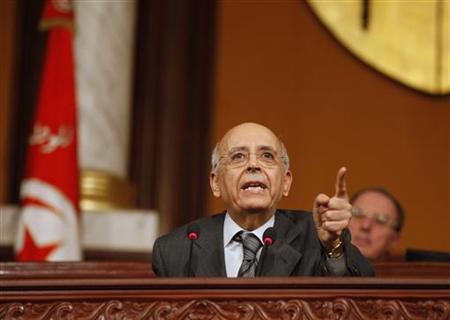Tunisia’s Prime Minister annouces resignation following wave of street protests
Unlike President Zeine el-Abidine Ben Ali who refused to step down before being forced to do so, Tunisian Prime Minister Mohamed Ghannouchi was quick to resign, following a wave of street protests.
Critics have accused Ghannouchi of being to close to the North African state's former government, toppled in an uprising last month, and of failing to enact reforms.
"I have decided to quit as prime minister," Ghannouchi announced during a news conference on state TV. He said that he thought carefully before taking the decision which was supported by his family.
"I am not running away from responsibility. This is to open the way for a new prime minister," he said. "I am not ready to be the person who takes decisions that would end up causing casualties," Ghannouchi said, as security forces clashed Sunday with anti-government protesters who were heading to the interior ministry.
"This resignation will serve Tunisia, and the revolution and the future of Tunisia," he concluded.
Protesters are demanding the removal from the interim government of members of the regime of Zine El Abidine Ben Ali, whose toppling on January 14 after weeks of protests sparked similar uprising across the Arab world.
Three people were killed when an anti-government protest in Tunis on Saturday turned violent as riot police and masked police in civilian clothes fired warning shots and tear gas at hundreds of protesters.
